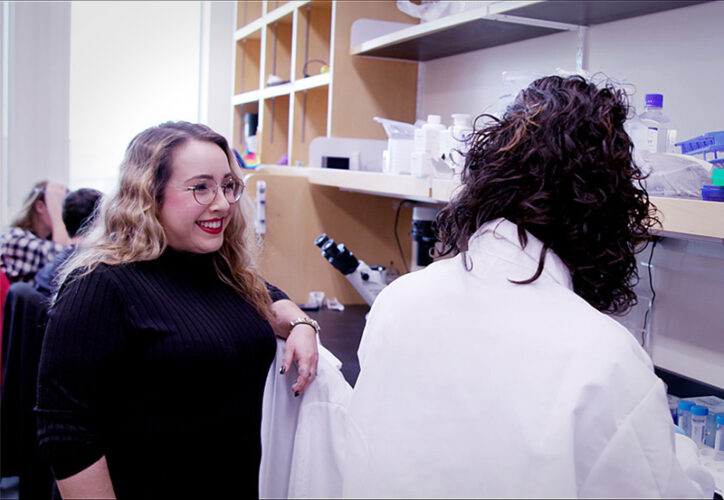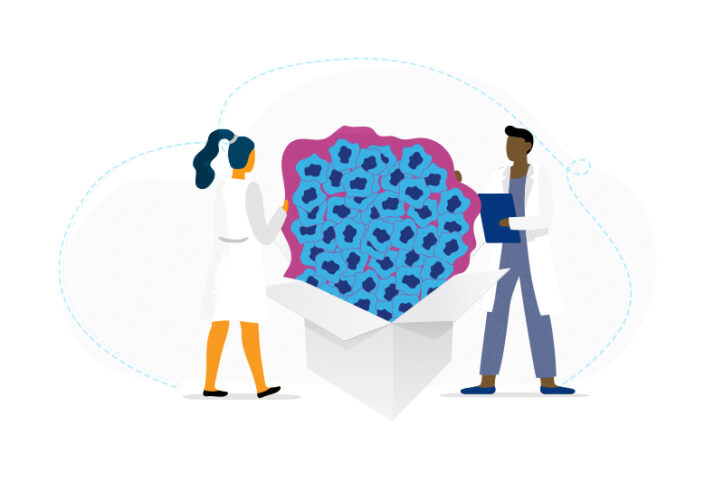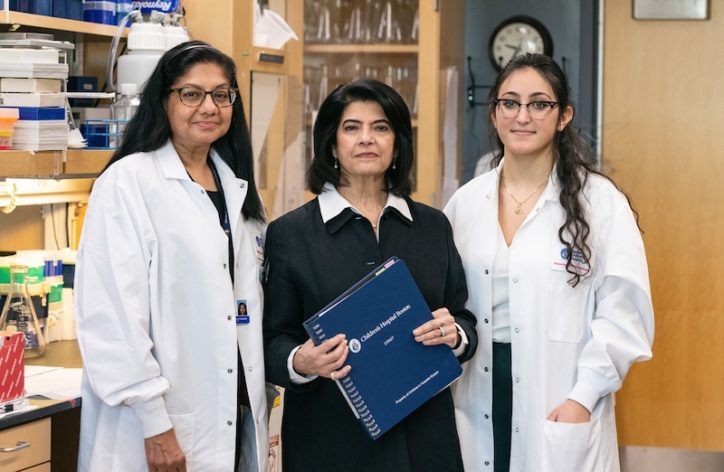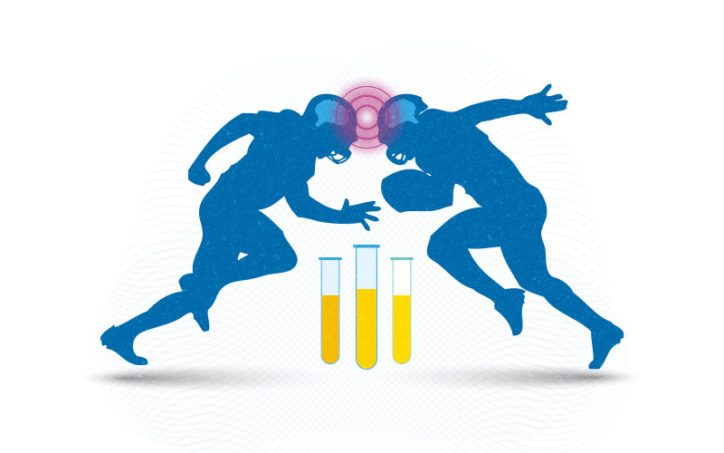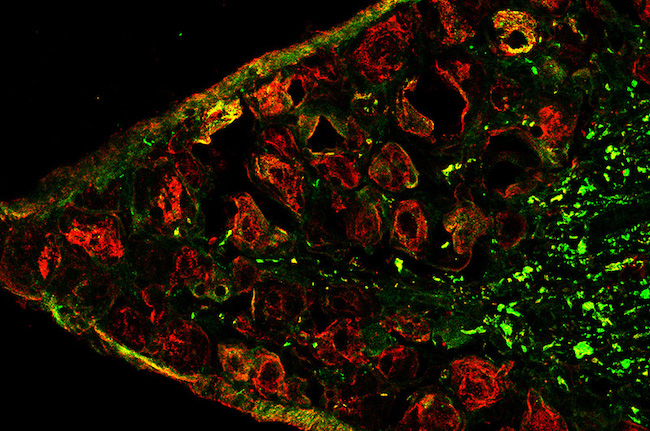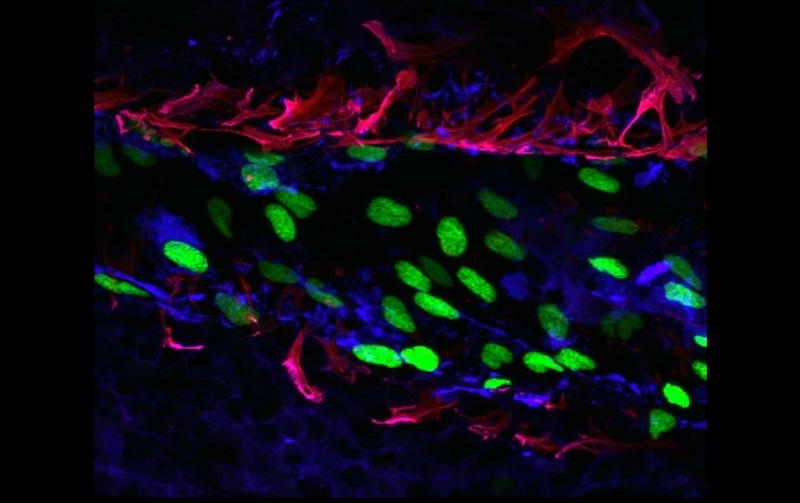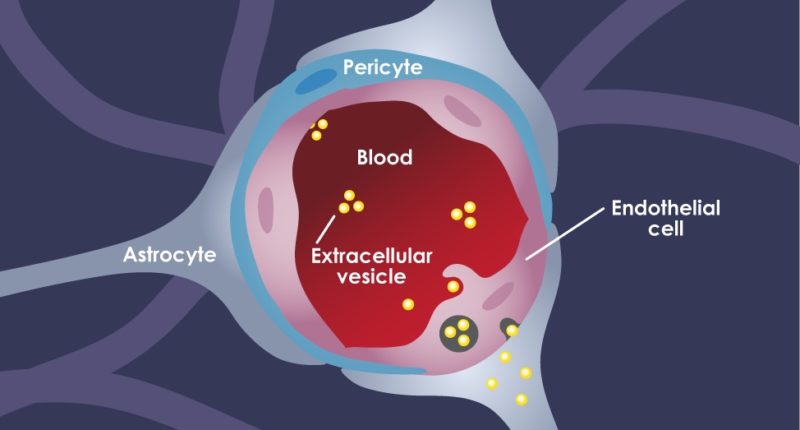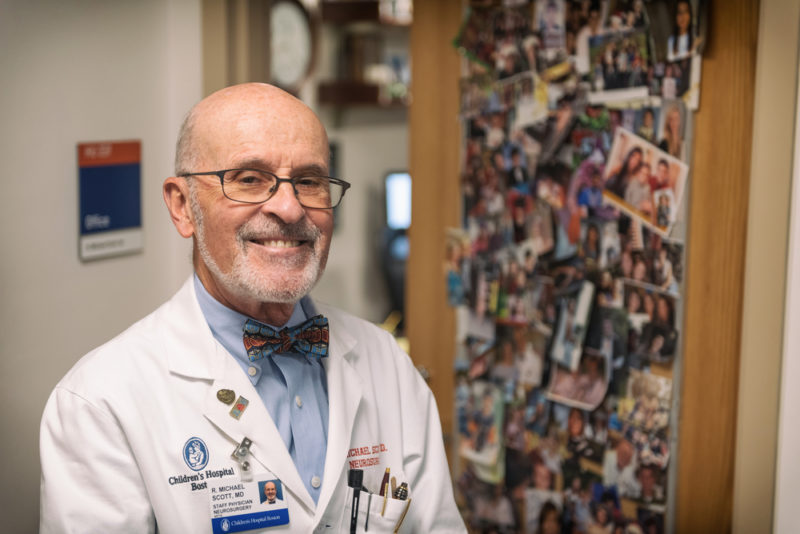Archive for vascular biology
A better treatment for endometriosis could lie in migraine medications
Endometriosis is a common, mysterious, often painful condition in which tissue similar to the uterine lining grows outside the uterus, forming lesions in locations such as the fallopian tubes, ovaries, and pelvis. These lesions can cause severe pain during periods, heavy menstrual bleeding, pelvic or abdominal pain, and sometimes painful bowel movements and urination. Existing ... Read More about A better treatment for endometriosis could lie in migraine medications
The clot thickens: Kellie Machlus, PhD
Part of an ongoing series profiling researchers at Boston Children’s Hospital. Platelets are the bandages of our blood, forming clots when we sustain an injury. Yet little is known about how they’re made, and there are no drugs that can immediately and directly trigger their production. Boston Children’s Hospital researcher Kellie Machlus, PhD, (@theclotthickens) couldn’t ... Read More about The clot thickens: Kellie Machlus, PhD
Tagged: blood, blood disorder, diet, hematology, research rising stars, vascular biology
Going out of the box to tackle pancreatic cancer
Pancreatic cancers are deadly and hard to treat, in part because they are so often detected at an advanced stage; overall five-year survival rates are about 11 percent. Two separate labs at Boston Children’s Hospital took out-of-the-box approaches to this difficult cancer, and both uncovered some very promising leads. Wiping out pancreatic tumors’ immune defense ... Read More about Going out of the box to tackle pancreatic cancer
Obesity is increasing people’s risk of cancer. Why?
Obesity is now a global epidemic, and it is increasing people’s risk for cancer. The National Cancer Institute lists more than a dozen cancers that are associated with overweight and obesity. But how obesity increases cancer risk hasn’t been clear. The lab of Marsha A. Moses, PhD, at Boston Children’s Hospital, now draws a direct ... Read More about Obesity is increasing people’s risk of cancer. Why?
Tagged: cancer, obesity, vascular biology
Could concussion be monitored through urine samples?
Concussion can be frustratingly hard to diagnose and track. The injury doesn’t show up on routine brain scans, and there is no definitive diagnostic test. It’s usually diagnosed based on symptoms and, in athletes, comparison with baseline testing if it was done. But concussion symptoms are non-specific, unreliable, and easily influenced by emotions. “Athletes usually ... Read More about Could concussion be monitored through urine samples?
Mouse model could lead to new treatments for endometriosis pain
There are few effective long-term treatments for endometriosis; even fewer options for relieving the often severe pain associated with the condition, which involves tissue overgrowth outside of the uterus. As a first step toward identifying new pain treatments, researchers in the laboratory of Michael Rogers, PhD, in the Vascular Biology Program at Boston Children’s Hospital, ... Read More about Mouse model could lead to new treatments for endometriosis pain
Tagged: pain, vascular biology
S1P and its receptor: New approaches to cancer?
In 1998, when Timothy Hla, PhD, and his colleagues identified and cloned the receptor for sphingosine-1-phosphate (S1P), it generated a lot of excitement. S1P, a lipid originally discovered in the 1960s, was known to play various roles in the body and in disease. But it wasn’t thought that lipids could have receptors, and it wasn’t ... Read More about S1P and its receptor: New approaches to cancer?
Tagged: cancer, immunotherapy, vascular biology
How breast cancer uses exosomes to metastasize to the brain
Metastasizing breast cancers typically seek out the bones, lung, and brain. Brain metastases are especially dangerous; many women survive for less than a year after diagnosis. How is the cancer able to get past the blood brain barrier? And can it be blocked? Those questions led PhD candidate Golnaz Morad, DDS, and her mentor Marsha ... Read More about How breast cancer uses exosomes to metastasize to the brain
Tagged: cancer, vascular biology
Neurosurgeon’s pioneering technique helps thousands of children
Michael Scott, MD, was a 29-year-old neurosurgery resident at Massachusetts General Hospital in Boston when he saw a patient with a condition he hadn’t learned about in medical school: a narrowing of the blood vessels entering the brain. It was 1970, and though Japanese doctors had described the condition a few years earlier, it would ... Read More about Neurosurgeon’s pioneering technique helps thousands of children
Dually-targeted liposomes curb triple-negative breast cancer, metastases in mice
Some 15 to 20 percent of all breast cancers are triple-negative, meaning they lack receptors for estrogen, progesterone and human epidermal growth factor type 2. They have the worst prognosis of all breast cancers and very limited treatment options. Finding a treatment that distinguishes between cancer cells and normal cells has been especially challenging. A ... Read More about Dually-targeted liposomes curb triple-negative breast cancer, metastases in mice



